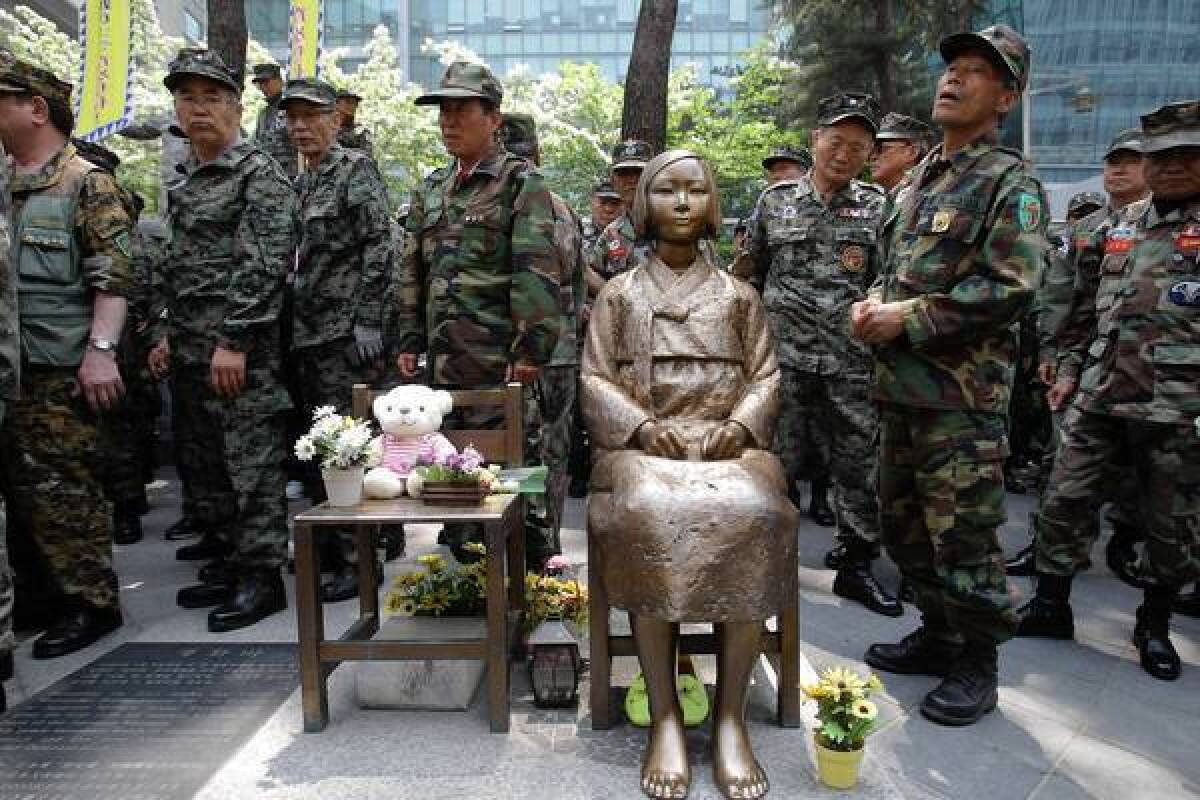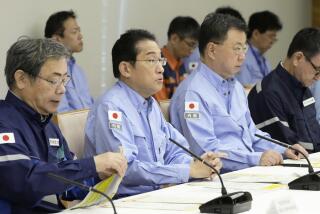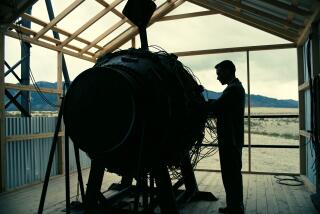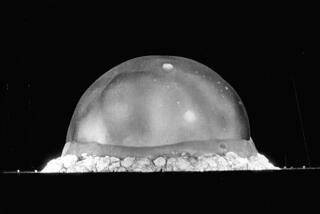Letters: Japan’s World War II denialism

Re “Glendale enters fight over WW II sex slaves,” July 11
Bravo to the city of Glendale for taking on Japan’s denial of World War II atrocities. Unlike Germany’s admission of its role in the deaths of so many and its efforts to compensate victims, Japan has taken the approach of denial and has refused compensation.
In fact, Japan has gone on the offensive, pointing to the wartime use of atomic bombs by the U.S. Hidden behind this rhetoric is the fact that Japan has never admitted that only two of its many atrocities — the Rape of Nanking and the Manila Massacre — resulted in many more deaths than those in Hiroshima and Nagasaki.
Glendale should not be intimidated by a few ultra-nationalists who do not represent the views of the Japanese people.
Angus Lorenzen
Rancho Palos Verdes
It was obscene for the Glendale City Council to approve the placement in a public park of a Korean sex-slave monument.
A park is a place for children to play, for aunts and uncles to walk hand-in-hand, for adolescents to kick a ball, for relatives to gather for a picnic. It is not a place for a particular group to display its cultural sores.
Any sculpture in a public park should be culturally neutral, uplifting, inspiring and above all beautiful. No parent should have to explain to a bewildered child what this monument means and why it is near their playground equipment. And if a parent is too embarrassed to explain, how explicit must the statue’s plaque be?
The placement of this monument is symptomatic of a larger problem with this country. America used be a society of independent individuals seeking their own happiness. It has now become a mob of ever-growing victim groups whose sufferings must be on constant display.
The history of Imperial Japan’s conquest of Korea belongs in the history books, not in a public park.
Ray Shelton
Glendale
A few years ago I toured the Yushukan, the Japanese national military museum in Tokyo. This museum depicts the history leading up to and through World War II.
At best I felt like Alice looking through the glass, and at worst it was a revisionist worldview showcasing the alleged nonaggression and victimhood of the Japanese under Emperor Hirohito.
The Rape of Nanking is not explained and is called an unjustified “incident,” while Japanese involvement in World War II is portrayed as saving Southeast Asia from imperialist Americans.
Interestingly, I had also recently visited a similar museum in Moscow that had a more balanced historical perspective. I left wondering how this version of history is taught in Japan’s schools, and what it portends for the future.
Jennie Dillon
Rancho Santa Margarita
Glendale City Councilman Ara Najarian, in responding to the unveiling of his city’s monument to the Korean “comfort women” during World War II, stated, “It’s not about punishing any country; this is about commemorating man’s inhumanity to man.”
Shouldn’t Najarian have instead said “man’s inhumanity to women”?
Marie Pollara Lévesque
Lake Balboa
ALSO:
Letters: Building enough housing
Letters: Ice cream trucks done right
Letters: Congress’ Obamacare tantrum
More to Read
A cure for the common opinion
Get thought-provoking perspectives with our weekly newsletter.
You may occasionally receive promotional content from the Los Angeles Times.






